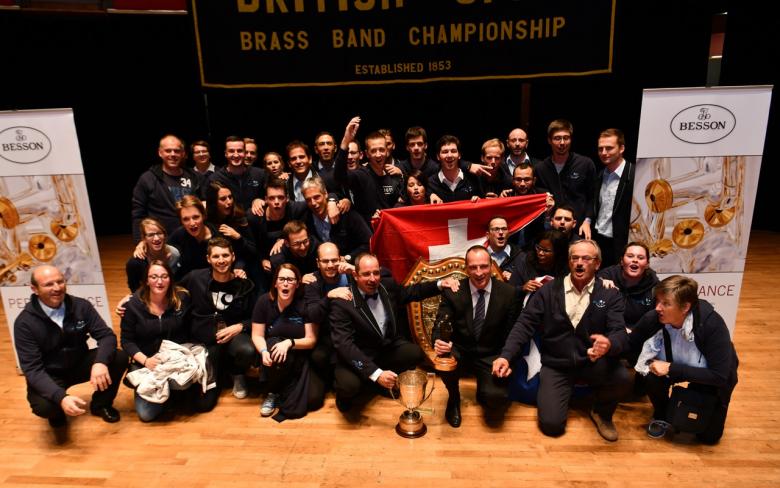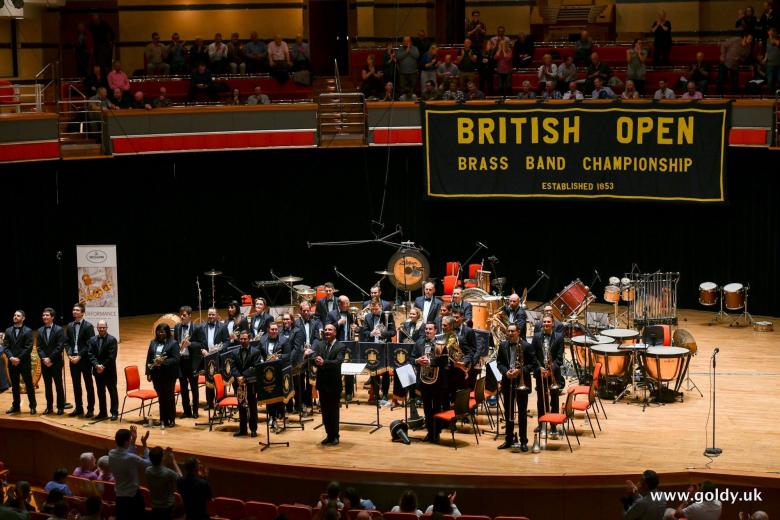Switzerland blowing its own trumpet
Swiss brass bands are known and enjoyed around the world. The brass band, a quintessentially British form of music, was first brought to Switzerland in 1957 by Appenzeller musician Ernst Graf. These days, Swiss brass bands are winning awards in some of the biggest international contests.
History
The brass band, known colloquially to the Swiss as a fanfare, is a musical ensemble comprising a range of brass and percussion instruments. Internationally a distinction is made between two types of brass band: the New Orleans style, a jazz sound that emerged in the early 20th century, and the British brass band, an orchestral formation that dates back to 1809. Most Swiss brass bands are in the British tradition.
By the late 19th century, the Industrial Revolution had spawned changes in the world of music, with the formation of brass bands in factories and collieries. As the standard of playing gradually increased, contests began to be held up and down the country.
Outside Britain, the popularity of brass bands came much later. The 1996 film Brassed Off gave them a big boost, especially in Europe. In Switzerland the first brass band was formed in Speicher in the 1950s by Appenzeller musician Ernst Graf, after he had spent some time in Northern Ireland.
Renowned Swiss bands
Brass bands are now widely recognised throughout Switzerland and internationally and there are many competitions held here and around the world. One Swiss band which has won numerous awards is the Valaisia Brass Band. This four-time Swiss champion came third in the European championships in 2016 and then went on to win the British Open in 2017, one of the oldest and most prestigious music contests in the world. This was quite a feat, as until then the Open had only ever been won by a British or Commonwealth band. "That was a surreal moment for us," recalls Arsène Duc, conductor of the Valaisia Brass Band. It's his job to guide and direct the 30-odd instrumentalists who follow every movement of his baton note-for-note.

Against the odds
"We were invited to enter the contest even though it's normally only open to the best British bands. There were 17 bands competing – the cream of the crop of brass bands. We were given the honour of competing because we came third in the European championships, behind two other bands already selected for the British Open," points out Arsène. "I remember seeing articles about us in the specialist press in the weeks leading up to the contest. They seemed to be quite wary of us, and the bookmakers even thought we'd come second." But the Swiss were better than they thought. Drawn by lot to perform in 12th position, the Valaisia Brass Band played their 17-minute test piece before the jury, who could only hear the participants but did not see them or know who they were. "We went out and played our best, just happy to have the chance to be there and enter the contest." In fact, their winning performance made history, and the organisers even had to change the rules because this was the first time in 166 years of the British Open that a foreign band won the title. "It was unbelievable to win the title, but we're still working hard. Now we are presented internationally as the winners of the British Open, and there's no end to the concert offers."

Family or military beginnings
Apart from his role as musical director of the Valaisia Brass Band (one of the four excellent brass bands from the Valais), Arsène Duc is above all its founder. "Where I'm from – the Noble Contrée – there were lots of good musicians but no real practice opportunities close by. So I set up our own brass band in 2008," he explains. The musicians are chosen by blind audition. Most people who play in brass bands come to them either through their military service or a family tradition. It was family in the case of 20-year-old Mathilde Roh, winner of the 2017 Prix Musique. "My grandfather, my father and my uncle were already playing in brass bands when I started, so it really was a no-brainer," she points out. "And having the family involved makes me all the more motivated. My younger brothers and sisters also play musical instruments. I feel I should set them a good example and encourage them to work hard and do their best." Arsène also grew up in a musical family but it was in the army that he had his first experience playing and conducting brass band music.
Mathilde plays the cornet, her first instrument and the one she has learnt to master. Arsène played the euphonium, like the rest of his family. While the two instrumentalists have different musical backgrounds, they are both from the Valais – one of three cantons known for their brass bands, along with Lucerne and Bern. Mathilde plays in the brass band 13 étoiles, another well-known Swiss ensemble. "It's not easy to get a place in one of the top brass bands. The opportunity came up when I was 12 and my music teacher suggested I audition." A highly talented musician, Mathilde is quite extraordinary at the cantonal level as she was the first female instrumentalist to win the Valais championship. "I was delighted and very proud of myself, but it takes a lot of hard work to be at that level." In 2017 she won the Prix Musique, which is equivalent to a Swiss national award. As a result of winning that title, she got to play a solo for the world-renowned Black Dyke Band from Britain at a concert in her home canton of Valais at the end of April. "Having the chance to play for them is something I'll never forget," she adds. "Winning titles is a great way to build a name for yourself in music and get opportunities to play as a soloist in concerts. Music is my passion, although I don't want to make it my job," she concludes.




